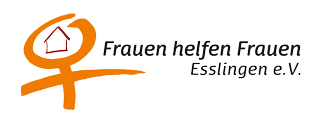Violence against women
Violence against women and children is commonplace and occurs regardless of nationality, income, age, level of education and population group. Violence against women is a violation of human rights and not just an individual problem. The causes lie in the unequal power relationship between women and men.
In Germany, every fourth woman between the ages of 16 and 85 has experienced violence by a relationship partner at least once in her life, according to a study by the Federal Ministry for Family, Senior Citizens, Women and Young People (2004). An EU study from 2014 even suggests that it is every third woman.
Women most often experience violence in intimate relationships. The effects of violence are diverse and range from anxiety, mental health problems, broken bones and long-term health problems, to murder.
Violence against women takes many forms…
and has many faces …
Domestic violence also affects children
When it comes to domestic violence, girls and boys are both witnesses and victims of violence. On the one hand, they often experience abuse and threats themselves; on the other hand, they witness, hear or see violence against their mother. Fear, arguments, beatings and the associated unpredictability in their own home are part of everyday life for these children. The home environment should be a place that provides them with protection and security. This fundamentally shakes the children’s trust and has a significant impact on each child’s personal development.

Even if the violence is not directed against the girls and boys themselves, witnessing violence can have numerous effects, such as acute fear or long-term consequences for the child’s development. Experiencing violence can impair the emotional, social and cognitive development of children. Even if the children appear unaffected and stable at first glance, domestic violence affects them existentially and restricts their free development.
Further information on this topic can be found in the brochure “Child welfare in focus: violence in partnerships and rights of access”.
Ways out of abuse
Essential personal decisions such as moving house, ending a relationship or changing jobs are difficult for many people and require careful thought and time. Many women affected by violence are in this situation. In addition, many of the women and children are afraid to speak about what they have experienced. Our offers of support include advice, support and accompanying you on your personal way out of abuse.
There are also legal options for taking action against domestic violence, e.g. within the scope of the Protection against Violence Act and eviction. Our intervention centre will provide advice following eviction.
You can find further information on this topic here.



